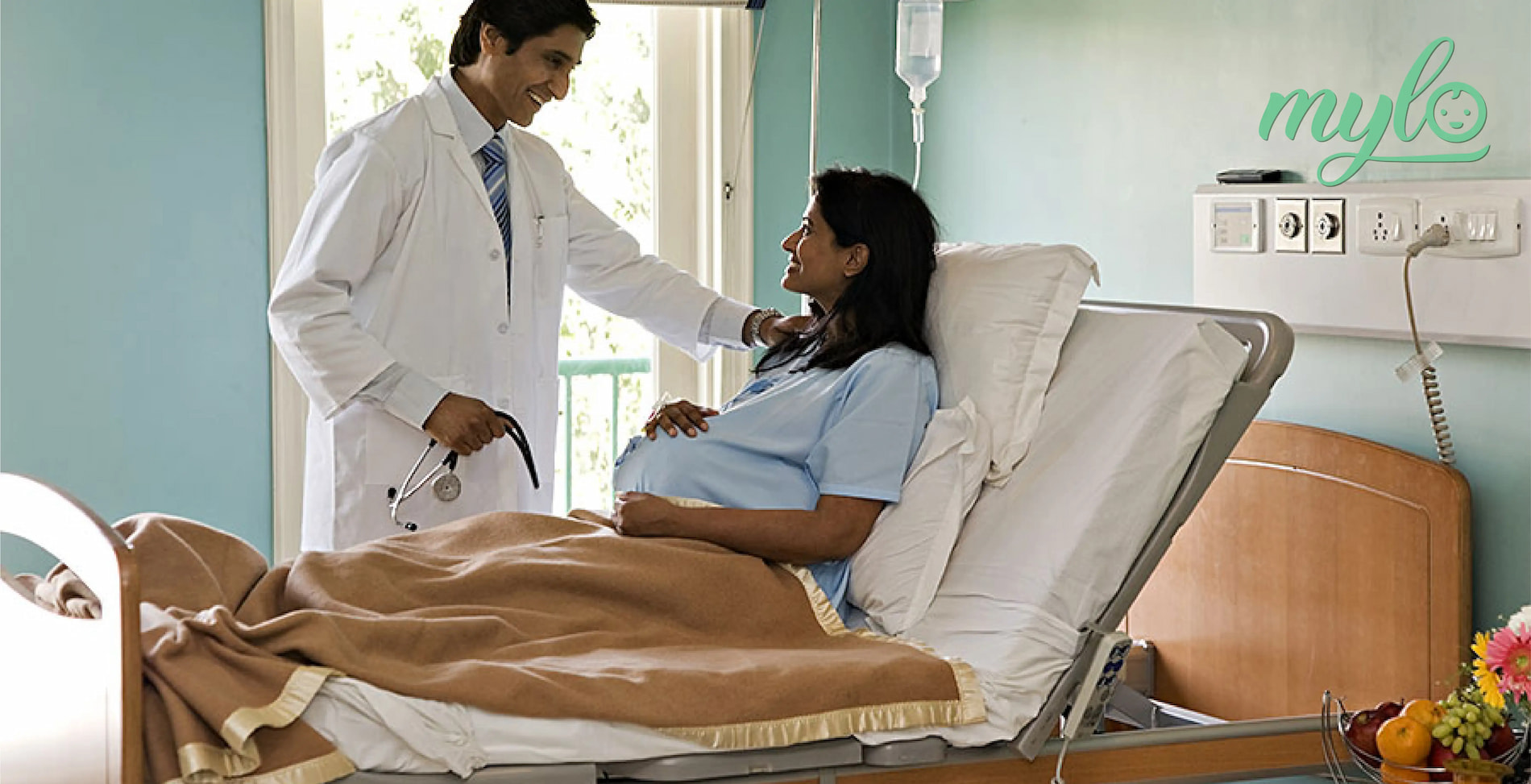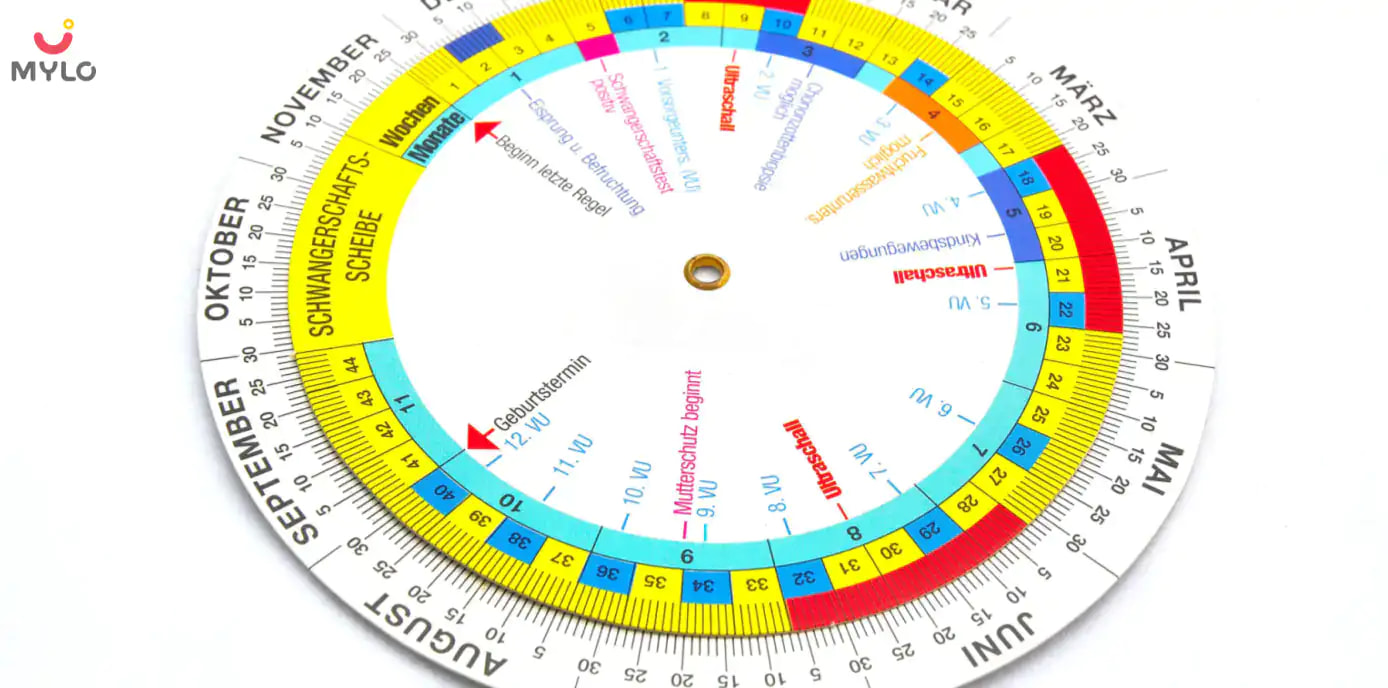Home

Regular Doctor Checkups in Pregnancy

A Pregnant Woman's Guide To Prenatal Visits
In this Article

Regular Doctor Checkups in Pregnancy
A Pregnant Woman's Guide To Prenatal Visits
Updated on 22 March 2023
In addition to all the fun things that go along with being a mother, like choosing a name and the perfect paint colour for your baby's nursery, make sure you've set up a prenatal appointment schedule. Regular prenatal visits to an OB/GYN or a family doctor trained in obstetrics guarantee that everything is as expected and that they can help detect any health problems early on when complications are easier to treat.
To help you prepare for your upcoming prenatal care visits, here's a look at when these meetings are usually set up and what goes on at each one, as well as a list of what you can expect at each meeting. Also, remember that you don't have to attend these appointments alone. Your partner, a friend or a family member can join you for support or to ask questions and share concerns with the doctor.
When Should You Have A Prenatal Visit?
As soon as you have a positive result on a home pregnancy test, contact your doctor to schedule an appointment. Good prenatal care is one of the most critical steps in having a healthy pregnancy and baby. The first prenatal visit usually takes place in the second month, between six and eight weeks of pregnancy. Be sure to call as soon as you doubt you're pregnant and have a pregnancy test. Some doctors may be able to fit you in right away, while others may have a wait time of several weeks. Regardless of when the first prenatal visit is scheduled, begin acting pregnant once you get that positive result at home, such as taking a prenatal vitamin, developing a healthy diet, switching to cocktails and skipping specific off-limit foods like rash fish.
1. First Trimester
Your first-trimester prenatal visit, which usually takes place during the second month of pregnancy, is usually the longest one as it comprises a complete recording of your medical, gynaecological and obstetrical history, as well as your mental health history. Your doctor will inquire about any medications you take and any diseases you've been exposed to, and they will want to know your partner's medical details too. Next, you'll have a checkup that'll comprise your height, weight, and blood pressure and a pelvic examination as well as confirmation of your pregnancy. Several tests will follow, such as urine, bloodwork, genetic carrier, STDs, a pap smear and a blood sugar test.
2. Second Trimester
Your second-trimester prenatal visits are on the shorter side, but these prenatal appointments still comprise a check of your weight, urine and blood pressure. Your doctor will also keep track of your baby's progress by measuring your abdomen, hearing fetal cardiac activity and checking whether you feel any fetal movement, such as belly kicks or fluttering. Some prenatal screenings or examinations may be offered now, including those for genetic or chromosomal conditions. You'll also have fetal ultrasounds to examine the baby's anatomy and relay the baby's sex if you want to know. And you'll have a series of blood tests to check your blood count and iron level and to examine for gestational diabetes.
3. Third Trimester
Since you're in the home stretch now, your third-trimester prenatal visits will become more frequent as your due date approaches. Along with the expected weight, urine and blood pressure checks, you can expect your doctor to pay attention to the baby's heartbeat and ask you about any contractions you feel or leaking fluid or any bleeding you may be experiencing.
You'll likely be tested for GBS, and your doctor may discuss vaccinations you require, like a flu shot, tetanus or Tdap. The baby's position is also examined to check whether it is headfirst in the uterus, bottom-first, feet-first, traverse(baby is lying sideways) or oblique, which means the head is down but directed towards one of your hips. Now's your opportunity to ask those last-minute questions about labour, pain management during childbirth and how and when to call your doctor if you think your baby is on the way.
What Is Included In Prenatal Visits?
What happens at each prenatal visit? The question most of us have in our minds. You can expect several prenatal tests throughout your pregnancy, depending on how far along you are. At nearly every prenatal visit, your doctor will also do the following:
-
Check your blood pressure.
-
The doctor will ask you to step on the scale to ensure you and your baby are growing well. Your doctor will analyse the size of your uterus, either vaginally or via ultrasound. During the second and third trimesters, when you're bigger, they will measure your abdomen and feel for the baby's size and position.
-
Take a urine sample: You'll be asked to pee in a cup so the doctor can test for too much protein (a symptom of preeclampsia) or sugar (a sign of gravitational diabetes).
-
Note any swelling in your hands, feet or face: Swelling in these spots is called oedema, excess fluid trapped in the body tissues and may be a sign of preeclampsia or high blood pressure during pregnancy.
-
Hear fetal cardiac activity: Your doctor may take out the Doppler monitor about 12 to 14 weeks into your pregnancy, which bounces sound waves off your baby's tiny ticker, enabling you to hear that sweet, thumping sound.
-
Discussing various test options: Your doctor will inform you about any recommended tests, such as ultrasounds, amniocentesis( to check for chromosomal abnormalities and fetal infections) and screening for genetic disorders, as well as the risks and advantages of each.
-
Offer information and guidance: Your doctor will fill you in on any recent or upcoming changes in your body or baby, clear your doubts and give you tips to help you stay healthy and happy until delivery day.
-
Examine your health and well-being: Your doctor will begin by asking how you feel and if any pregnancy symptoms concern you. While morning sickness is expected in the first trimester, you can get several other complications as your bump grows more significant such as constipation, swollen legs and ankles or back pain.
-
Guidance on pregnancy diet and nutrition: Your doctor will advise you on healthy eating during pregnancy. A well-balanced diet will help your body obtain the nutrients required to grow your baby and help you manage your weight gain.
You may also like to read : What Is The Best Thing For Pregnant Women To Eat?
What Are The Most Important Prenatal Visits?
Pregnant women will visit their doctor or nurse practitioner every four weeks during the first and second trimesters. However, during the third trimester, you'll be seen more frequently, usually every other week until 36 weeks, and then every week until the baby is delivered. In most complication-free pregnancies, you can expect to have a prenatal visit with the following frequency:
-
Weeks 4 to 28: Once a month
-
Weeks 28 to 36: Every other week
-
Week 36 until birth: Every week
The frequency of prenatal visits increases in the third trimester because certain pregnancy complications like preeclampsia are more likely to appear then; problems with your baby's growth also tend to occur later during pregnancy, so your doctor will also want to measure your weight, belly size and other factors frequently during the last trimester.
How Many Prenatal Visits Are Normal?
How many prenatal visits in total? If your pregnancy is free of complications and your overall health is normal, you're likely to have around 15 prenatal visits during your pregnancy. Your visits are scheduled closer together as your pregnancy progresses. However, you may require more appointments with less time between visits if you have pre-existing medical conditions or other problems linked with a higher risk of complications.
Can I Skip Prenatal Appointments?
From a clinical perspective, each one of your prenatal visits is designed to assess what's going on in your body relative to the most common red flags that might arise during the week or trimester. Hence it is essential not to skip any prenatal appointments for the following reasons:
-
Your baby's health depends on it
-
It can identify more minor problems before they become larger ones
-
Timely testing provides critical information
-
It makes your health a priority
-
You have time to learn more about your birth plan
Also, beyond the clinical perspective, each prenatal visit gives you a chance to create a relationship and deepen that relationship with the team of people who will be there for you when you're ready to deliver your baby. Also, the bond is invaluable as it helps you feel safer as you go through one of the most remarkable milestones of your life.
Summary
Prenatal care visits are full of tests, measurements, questions and doubts, but understand that throughout the process, your and your baby's well-being is the main focus. Keep your schedule organised so you don't forget any appointments, and note anything you want to discuss with your doctor. Also, your prenatal experience should be both positive and rewarding. Prenatal visits also help your doctor to assess your health, emotional well-being and your baby's growth and development. Never miss any pregnancy check-ups, as they allow your doctor to monitor your pregnancy and intervene if necessary closely.



Written by
Mylo Editor
Official account of Mylo Editor
Read MoreGet baby's diet chart, and growth tips

Related Articles
Related Questions
Hello frnds..still no pain...doctor said head fix nhi hua hai..bt vagina me pain hai aur back pain bhi... anyone having same issues??

Kon kon c chije aisi hai jo pregnancy mei gas acidity jalan karti hain... Koi btayega plz bcz mujhe aksar khane ke baad hi samagh aata hai ki is chij se gas acidity jalan ho gyi hai. Please share your knowledge

I am 13 week pregnancy. Anyone having Storione-xt tablet. It better to have morning or night ???

Hlo to be moms....i hv a query...in my 9.5 wk i feel body joint pain like in ankle, knee, wrist, shoulder, toes....pain intensity is high...i cnt sleep....what should i do pls help....cn i cosult my doc.

Influenza and boostrix injection kisiko laga hai kya 8 month pregnancy me and q lagta hai ye plz reply me

RECENTLY PUBLISHED ARTICLES
our most recent articles

Stretch Marks
Stretch Marks Removal: Tips & Remedies

Fussy Baby
How Can Dads Calm A Fussy Toddler

General Father
How to prepare your older child for a new baby

General Father
5 Financial Moves You Must Make Before Your Baby Arrives

General Father
Daddy-Baby bonding from Pregnancy to Childbirth: Top 7 tips for you

General Preschoolers
How to prepare your child for pre-school
- I am pregnant, can I still breastfeed my toddler?
- My toddler has bad breath. what should I do?
- When will my toddler learn how to scribble or draw?
- Can loud volume affect my toddler's ears?
- Running & Jumping Milestones for your toddler
- Activities to keep an active toddler occupied at home
- Girls' growth chart: 24 to 36 months
- What to do if your toddler is overweight?
- Electric toothbrush for Toddlers: Is it safe?
- Teaching good eating habits to your kids
- How to Introduce Books to Your Child?
- This is how you can talk to your child about strangers
- A healthy meal plan for your 2-year-old
- Music In Pregnancy: How Does Music Affect Your Baby’s Brain


AWARDS AND RECOGNITION

Mylo wins Forbes D2C Disruptor award

Mylo wins The Economic Times Promising Brands 2022
AS SEEN IN
















- Mylo Care: Effective and science-backed personal care and wellness solutions for a joyful you.
- Mylo Baby: Science-backed, gentle and effective personal care & hygiene range for your little one.
- Mylo Community: Trusted and empathetic community of 10mn+ parents and experts.
Product Categories
baby carrier | baby soap | baby wipes | stretch marks cream | baby cream | baby shampoo | baby massage oil | baby hair oil | stretch marks oil | baby body wash | baby powder | baby lotion | diaper rash cream | newborn diapers | teether | baby kajal | baby diapers | cloth diapers |








